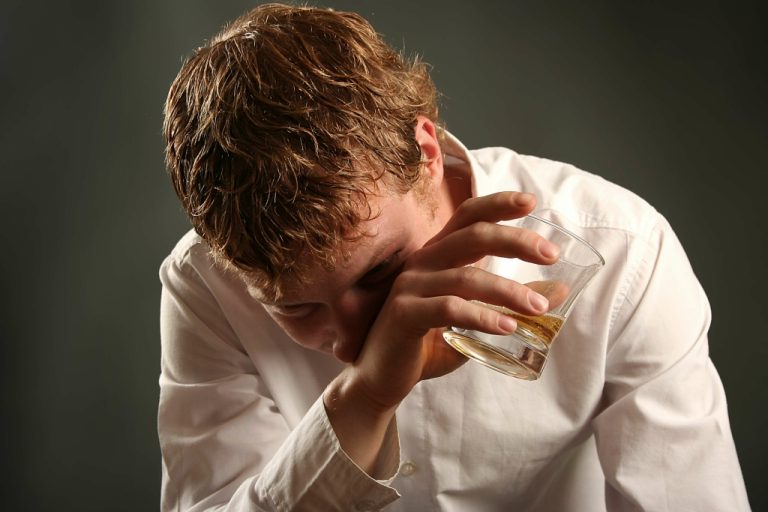
Sobering Findings: Anxiety and Mood Disorders Linked to More…
Contents:
SUD occurs when you have an uncontrollable need to use a substance, despite its negative effects on your life. Easing social situations and promoting positive experiences may be two reasons Asperger’s and alcoholism sometimes go hand in hand. Clinical trials are research studies that look at new ways to prevent, detect, or treat diseases and conditions.
People with AUD have a heightened risk for depressive disorders, which are the most common co-occurring psychiatric disorders for this population. AUD and depressive disorders appear to share some behavioral, genetic, and environmental risk factors, yet these shared risks remain eco sober house ma poorly understood. Finally, the etiology, course, and treatment of both AUD and depression differ substantially by gender. Women have been underrepresented in much of the research on co-occurring AUD and depressive disorders, particularly in the early research on this topic.

If you feel that you sometimes drink too much alcohol, or your drinking is causing problems, or if your family is concerned about your drinking, talk with your health care provider. Other ways to get help include talking with a mental health professional or seeking help from a support group such as Alcoholics Anonymous or a similar type of self-help group. 2019 research suggests that depressive disorders are more common in people with alcohol dependence than in those who engage in alcohol misuse, like binge drinking. However, both alcohol dependence and alcohol misuse fall under the AUD umbrella. If you live with both depression and AUD, you’re not alone. A 2019 review reveals that depressive disorders are the most common mental health disorders in people with AUD.
Alcohol use and depression symptoms
You can also get help from Alcoholics Anonymous or an alcohol treatment center in your area. If your pattern of drinking results in repeated significant distress and problems functioning in your daily life, you likely have alcohol use disorder. However, even a mild disorder can escalate and lead to serious problems, so early treatment is important. Alcohol use disorder is a pattern of alcohol use that involves problems controlling your drinking, being preoccupied with alcohol or continuing to use alcohol even when it causes problems. This disorder also involves having to drink more to get the same effect or having withdrawal symptoms when you rapidly decrease or stop drinking. Alcohol use disorder includes a level of drinking that’s sometimes called alcoholism.

At least 30%-40% of alcoholics also experience a depressive disorder. For some people, alcohol dependence can also cause social problems such as homelessness, joblessness, divorce, and domestic abuse. Sometimes people drink alcohol to help with the symptoms of stress, anxiety, and depression.
What is considered 1 drink?
Major depressive disorder – Sufferers experience very severe depression symptoms that interfere with their ability to function. Some individuals have only 1 episode, but most have several throughout their lives. Individuals with major depressive disorder typically cycle through episodes of feeling very depressed and then periods of feeling symptom-free. This is the most common form of depression in the United States. When someone has a SUD and another mental health disorder, it is usually better to treat them at the same time rather than separately. People who need help for a SUD and other mental disorders should see a health care provider for each disorder.

During therapy, you can learn coping mechanisms that can help you return to life without drinking. Alcohol may be a form of self-medication for people with depression. sober houses in boston The “burst” of energy from alcohol can be a welcome relief against some symptoms. For example, alcohol may temporarily reduce anxiety and lower inhibitions.
Diagnosis and treatment
A glass of water and a light snack can help you avoid a bad hangover. Exercise often provides a natural mood boost, so you’ll probably feel better once you get moving. You might feel a little unwell physically, but as long as the room doesn’t spin when you stand up, try to get outside for a short walk — or a longer one, if you can manage it.
Contributors to this article for the NIAAA Core Resource on Alcohol include the writers for the full article, reviewers, and editorial staff. These contributors included both experts external to NIAAA as well as NIAAA staff. Generalized anxiety disorder typically presents with persistent and generalized worrying, poor sleep, fatigue, and difficulty relaxing. I even took a bet a couple years ago that I could go an entire year without alcohol. I set times aside to drink and when I do I never drink and drive.
- If you or a loved one is struggling with a co-occurring mental health disorder and alcohol addiction, it’s important to remember that you are not alone.
- Alcohol abuse is rampant among sufferers of depression.
- This may be because MDD is one of the most common conditions in the general population.
- A drink once in a while when you’re stressed out or blue is one thing.
A treatment facility paid to have their center promoted here. Learn more about how to be featured in a paid listing. Have a confidential, completely free conversation with a treatment provider about your financial options.
Participating in a self-management education program can help patients manage depression and take control of their symptoms, such as anxiety, depressed mood, tiredness, and appetite changes. Postpartum Depression affects women after having a baby. It causes intense, long-lasting feelings of anxiety, sadness, and fatigue, making it difficult for mothers to care for themselves and/or their babies, as well as handle daily responsibilities. Postpartum depression can start anywhere from weeks to months after childbirth. For more than 20 million people in the United States who have depression, the feelings persist and can interfere with everyday life. Women for Sobriety is a nonprofit organization offering a self-help group program for women who want to overcome alcoholism and other addictions.
It also increases the likelihood, frequency, and severity of suicidal thoughts. Alcohol can also cause other stressors in life, such as career and family problems that worsen depression. If the depressed person then turns to alcohol to make themselves feel better, a vicious cycle has started that can be extremely difficult to break out of.
Sometimes, alcohol can make you feel even worse than you did before. Outpatient settings offers much of the same programming as inpatient treatment but is relatively less time intensive. Patient are able return home or to other living situations outside of treatment hours. Outpatient treatment may only be an option if a person’s current level of physical dependence does not necessitate the need for inpatient treatment.
Alcohol abuse and depression are very closely correlated. Many depression sufferers, especially ones who have not been properly diagnosed, often turn to alcohol to escape. Desperate to feel better or numb the pain, even for a little while, depression sufferers often use the pleasurable effects of alcohol for that purpose. Alcohol abuse is rampant among sufferers of depression.
Follow Mayo Clinic
In this section, trials that used medication and psychotherapy treatments are discussed, as are the effects of those treatments on depressive symptoms and AUD symptoms. Not every person with depressive disorder drinks at all, much less is an alcoholic. However, individuals suffering from depression who are not in active treatment are more likely than the general population to be alcoholics. Two, https://sober-house.org/ by treating the depressive disorder, it is easier for the individual to avoid falling into the trap of alcoholism. It’s common for people with a mental health disorder such as anxiety, depression, schizophrenia or bipolar disorder to have problems with alcohol or other substances. In people with a substance use disorder, less than 1% with depressive disorders had substance-induced symptoms.
Press Resources
A dual diagnosis can be complicated to treat, no matter the circumstances. The most common treatment options are included below, but know that recovery requires a personalized treatment plan that best suits your mental health needs. When it comes to diagnosing an alcohol use disorder and a major depressive disorder, it’s important to address them simultaneously, as they can significantly impact your recovery. The co-occurrence of a major depressive disorder and an alcohol use disorder is surprisingly common. Depression is defined as a prolonged period of feeling sad, lonely, hopeless, lost, worthless, devoid of energy, apathetic, and even suicidal. Almost everyone goes through at least a few periods of depression during their life.
John C. Umhau, MD, MPH, CPE is board-certified in addiction medicine and preventative medicine. He is the medical director at Alcohol Recovery Medicine. For over 20 years Dr. Umhau was a senior clinical investigator at the National Institute on Alcohol Abuse and Alcoholism of the National Institutes of Health . However, not treating both can make the conditions worse. That’s why your doctor or psychologist will work with you to create a treatment approach that addresses both issues. Many doctors recommend patients check into a rehabilitation facility.

